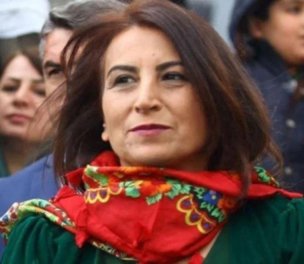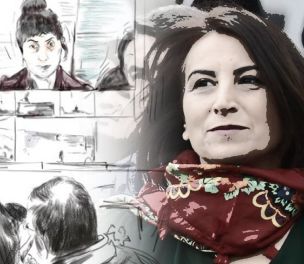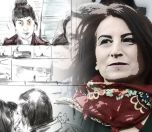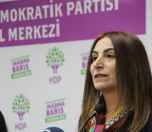Click to read the article in Turkish
The eighth session of the 15th hearing of the Kobanî trial, where 108 members of the Peoples' Democratic Party (HDP) are facing life sentences over the deadly Kobanî protests in 2014, was held yesterday (August 5) at the Sincan Prison Complex in Ankara, the capital.
Announcing an interim verdict at around midnight, the court ruled for the release of Aysel Tuğluk, a former senior figure of the HDP who has been diagnosed with dementia. It ruled for the continuation of the arrest of the other defendants, which include former executives and co-leaders of the party.
However, Tuğluk will continue to stay in prison as well, due to her prison sentence in another case. The Ankara 17th Heavy Penal Court in March 2018 sentenced Tuğluk to 10 years in prison for "managing an illegal organization." The Court of Cassation, the top appeals court, upheld the verdict in February 2020.
Human rights groups have been campaigning for the release of Tuğluk for months due to her deteriorating condition.
The court caused a backlash after forcing Tuğluk to make defense in the latest hearing.
Judges insistently asked her questions despite her saying, "I don't know when it happened, what happened. I don't know what I'm being tried for."
CLICK - Forensic medical report says Kurdish politician Aysel Tuğluk 'can stay in prison'
CLICK - Aysel Tuğluk's attorneys say Forensic Medicine Institution report 'not scientific'
From the Kobanî indictmentThe Ankara Chief Public Prosecutor's Office prepared an indictment regarding the Kobanî protests that took place on October 6-8, 2014. 108 people, including the arrested former Co-Chair of the Peoples' Democratic Party (HDP) Selahattin Demirtaş, were among the "suspects". The indictment seeks the punishment of all suspects on the charges of "disrupting the unity and territorial integrity of the state", "killing for 37 times, "attempted killing for 31 times", "burning the flag" and "violating the Law on Protecting Atatürk." Prepared by the Terror Crimes Investigation Bureau of the Ankara Chief Public Prosecutor's Office, the indictment was sent to the Ankara 22nd Heavy Penal Court. The court accepted the indictment on January 7, 2021. The names of all defendants: Figen Yüksekdağ, Sebahat Tuncel, Selahattin Demirtaş, Selma Irmak, Sırrı Süreyya Önder, Gülfer Akkaya, Gülser Yıldırım, Gültan Kışanak, Ahmet Türk, Ali Ürküt, Alp Altınörs, Altan Tan, Ayhan Bilgen, Nazmi Gür, Ayla Akat Ata, Aysel Tuğluk, İbrahim Binici, Ayşe Yağcı, Nezir Çakan, Pervin Oduncu, Meryem Adıbelli, Mesut Bağcık, Bircan Yorulmaz, Bülent Barmaksız, Can Memiş, Cihan Erdal, Berfin Özgü Köse, Günay Kubilay, Dilek Yağlı, Emine Ayna, Emine Beyza Üstün, Mehmet Hatip Dicle, Ertuğrul Kürkçü, Yurdusev Özsökmenler, Arife Köse, Ayfer Kordu, Aynur Aşan, Ayşe Tonğuç, Azime Yılmaz, Bayram Yılmaz, Bergüzar Dumlu, Cemil Bayık, Ceylan Bağrıyanık, Cihan Ekin, Demir Çelik, Duran Kalkan, Elif Yıldırım, Emine Tekas, Emine Temel, Emrullah Cin, Engin Karaaslan, Enver Güngör, Ercan Arslan, Fatma Şenpınar, Fehman Hüseyin, Ferhat Aksu, Filis Arslan, Filiz Duman, Gönül Tepe, Gülseren Törün, Gülten Alataş, Gülüşan Eksen, Gülüzar Tural, Güzel İmecik, Hacire Ateş, Hatice Altınışık, Hülya Oran, İsmail Özden, İsmail Şengül, Kamuran Yüksek, Layika Gültekin, Leyla Söğüt Aydeniz, Mahmut Dora, Mazhar Öztürk, Mazlum Tekdağ, Abdulselam Demirkıran, Mehmet Taş, Mehmet Tören, Menafi Bayazit, Mızgın Arı, Murat Karayılan, Mustafa Karasu, Muzaffer Ayata, Nazlı Taşpınar, Neşe Baltaş, Nihal Ay, Nuriye Kesbir, Remzi Kartal, Rıza Altun, Ruken Karagöz, Sabiha Onar, Sabri Ok, Salih Akdoğan, Salih Müslüm Muhammed, Salman Kurtulan, Sara Aktaş, Sibel Akdeniz, Şenay Oruç, Ünal Ahmet Çelen, Yahya Figan, Yasemin Becerekli, Yusuf Koyuncu, Yüksel Baran, Zeki Çelik, Zeynep Karaman, Zeynep Ölbeci, Zübeyir Aydar. |
About Kobanî protestsIn September 2014, ISIS, which controlled a large territory in Syria at the time, launched an offensive to Kobanî, a Kurdish town in northern Syria, near the country's border with Turkey. In late September, a group of people went to Suruç, a town neighboring Kobanî in the predominantly Kurdish city of Urfa, and attempted to cross the border. Police prevented them, using tear gas and rubber bullets. Pictures allegedly showing ISIS militia crossing into Syria were published on the same days. Also, President Recep Tayyip Erdoğan made statements at the time, indicating that they equated the PKK with ISIS. While the wounded coming from Kobanî were kept waiting on the border, the wounded from ISIS were treated at hospitals, according to news reports. Several news reports were reported in the press, saying "Kobanî fell." These news reports were denied every time. After the HDP made a call to take to the streets against a possible massacre in Kobanî, thousands of people protested in Kurdish-majority provinces as well as Ankara and İstanbul. While left parties also supported these protests, deaths also occurred with the onset of police violence. Street conflicts ensued. 42 people lost their lives from October 6 to 12, 2014. According to a report by the Human Rights Association (İHD), 46 people died, 682 people were wounded and 323 people were arrested in the protests held between September 7 and 12, 2014. As reported by the AA, 31 people lost their lives, 221 citizens and 139 police officers were wounded. |
(EMK/VK)




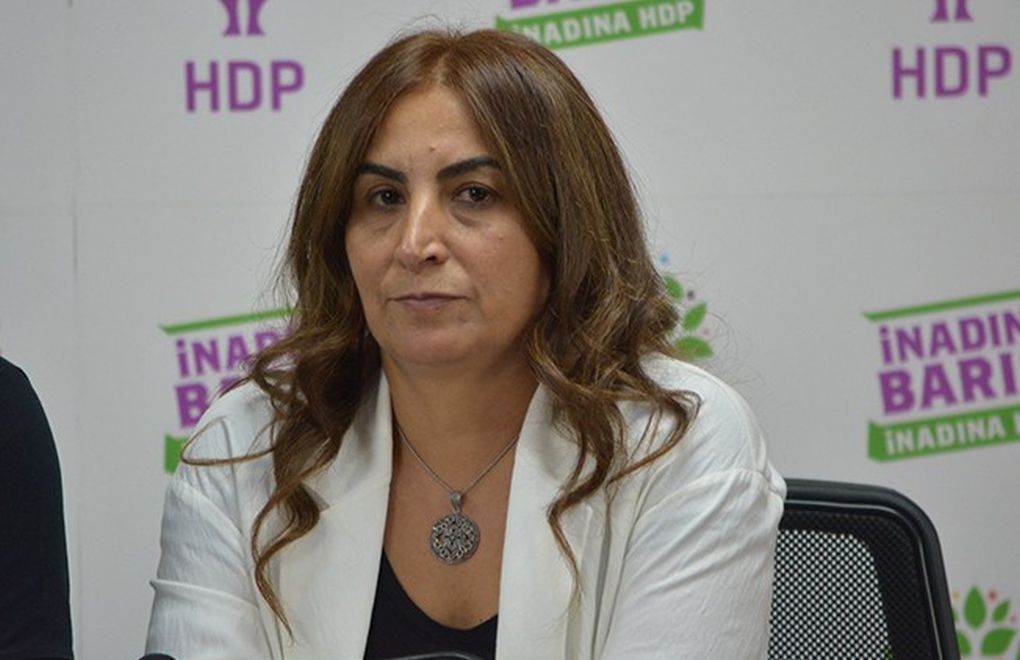
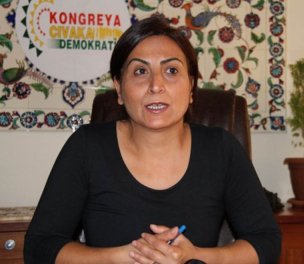
.jpg)
